Films with theme "Films about racism", sorted by rating
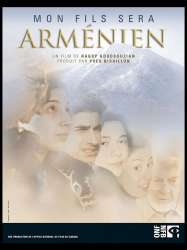
My Son Shall Be Armenian (2004)
, 1h20Origin Canada
Genres Documentary
Themes Films about racism, Documentary films about racism, Documentary films about law, Documentary films about war, Documentary films about historical events, Documentaire sur une personnalité, Political films

L'Afrique en morceaux (2000)
, 1h44Origin France
Genres Documentary
Themes Films set in Africa, Films about racism, Documentary films about racism, Documentary films about law, Documentary films about war, Documentary films about historical events, Documentaire sur une personnalité, Documentary films about politics, Political films
April, 1994. Genocide in Rwanda. 800,000 dead. A catastrophe that upset the balance in the entire region. The Great Lakes region of Africa ended the year with a bloodbath. This documentary shows the intrigues, the dramatic effects, the treasons, the vengeances that prevailed over those years and whose only goal was to maintain or increase each faction’s area of influence. In just ten years, the population saw all their hopes vanish: The dream of an Africa in control of its own destiny, alimentary self-sufficiency, the end of interethnic conflicts.
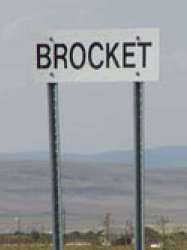 , 1h38
, 1h38Origin Canada
Themes Films about racism, Documentary films about racism, Documentary films about law, Documentaire sur une personnalité

Hanuszka (2006)
, 1h6Genres Documentary
Themes Films about racism, Films about religion, Documentary films about racism, Documentary films about law, Documentary films about war, Documentary films about historical events, Documentaire sur une personnalité, Documentary films about religion, Political films, Films about Jews and Judaism, Documentary films about World War II

Below the Fold (2007)
, 26minutesThemes Films about racism, Documentary films about racism, Documentary films about law, Documentaire sur une personnalité, Documentary films about cities
On July 12, 1981 the Los Angeles Times published the first article in what came to be known as the "Marauders Series". Full of negative stereotypes and inflammatory language, the series depicted African Americans and Latinos as ruthless thieves who committed crimes in affluent neighborhoods and who fled via L.A.'s freeways.

The War on Britain's Jews? (2007)
, 50minutesGenres Documentary
Themes Films about racism, Films about religion, Documentary films about racism, Documentary films about law, Documentaire sur une personnalité, Documentary films about religion, Films about Jews and Judaism
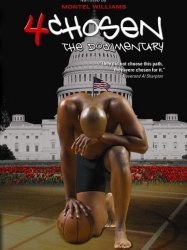
4Chosen: The Documentary (2008)
Directed by Jon Doscher
Origin USA
Genres Documentary
Themes Films about racism, Documentary films about racism, Documentary films about law, Documentaire sur une personnalité
Actors Al Sharpton

As We Forgive (2008)
Genres Documentary
Themes Films set in Africa, Films about racism, Documentary films about racism, Documentary films about law, Documentary films about war, Documentary films about historical events, Documentaire sur une personnalité, Documentary films about politics, Political films
The film tells the story of two Rwandan women who come face-to-face with the neighbors who slaughtered their families during the 1994 genocide, and their personal journeys toward forgiveness. Featuring in-depth interviews with both survivors and murderers, As We Forgive provides an intimate, first-hand view of the encounters between genocide perpetrators and their victims’ families.
 , 2h20
, 2h20Origin USA
Genres Documentary
Themes Films about writers, Films about slavery, Films about racism, Documentary films about racism, Documentary films about law, Documentary films about historical events, Documentaire sur une personnalité
Actors Diahann Carroll
 , 52minutes
, 52minutesGenres Documentary
Themes Films about slavery, Films about racism, Documentary films about racism, Documentary films about law, Documentary films about war, Documentary films about historical events, Documentaire sur une personnalité, Political films, Disaster films
Frederick Douglass and the White Negro is a documentary telling the story of ex-slave, abolitionist, writer and politician Frederick Douglass and his escape to Ireland from America in the 1840s. The film follows Douglass' life from slavery as a young man through to his time in Ireland where he befriended Daniel O'Connell, toured the country spreading the message of abolition and was treated as a human being for the first time by white people. His arrival in Ireland coincided with the Great Famine and he witnessed white people in what he considered to be a worse state than his fellow African Americans back in the US. The film follows Douglass back to America where he buys his freedom with funds raised in Ireland and Britain. Fellow passengers on his return journey include the Irish escaping the famine who arrive in their millions and would go on to play a major role in the New York Draft Riot of 1863 which Douglass could only despair over. The film examines (with contributions from the author of How The Irish Became White Noel Ignatiev amongst others) the turbulent relationship between African Americans and Irish Americans during the American Civil War, what drew them together and what drove them apart and how this would shape the America of the twentieth century and beyond.
 , 43minutes
, 43minutesOrigin Canada
Genres Documentary
Themes Films about racism, Films about religion, Documentary films about racism, Documentary films about law, Documentary films about war, Documentary films about historical events, Documentaire sur une personnalité, Documentary films about religion, Political films, Films about Jews and Judaism, Documentary films about World War II
A search, a journey, a life’s dream fulfilled. Seventy-seven-year-old Holocaust survivor Alice Zuckerman never gave up hope she would find her family, lost after the Second World War. When scribbled notes on torn paper reveal clues to her past, Alice and her family reunite. Alice takes us on a moving journey through old Eastern Europe, a world that seemingly disappeared through Nazism and communism. Yet the world of Alice’s childhood remains vital in the hearts of the people she meets along the way.
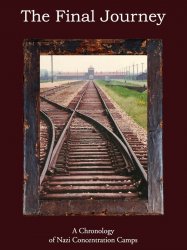
The Final Journey (2010)
, 2h8Directed by R. J. Adams
Origin USA
Genres Documentary
Themes Films about racism, Films about religion, Documentary films about racism, Documentary films about law, Documentary films about war, Documentary films about historical events, Documentaire sur une personnalité, Documentary films about religion, Political films, Films about Jews and Judaism, Documentary films about World War II
Actors Rob Adams, Kelly Crean
The two-hour-long film utilizes a then and now format that blends first-generation archival film with current HD footage of each of the former Nazi camps as they are today and the how and who they appeared during the Third Reich.

Yellow Face (2010)
, 45minutesOrigin USA
Genres Documentary
Themes Films about racism, Documentary films about racism, Documentary films about law, Documentaire sur une personnalité
Yellow Face is one Chinese actress' journey to discover what it means to be "Asian" in America. The filmmaker is the first Chinese National to be accepted into the Juilliard School's Drama Division. Since her graduation in 2008 she has followed the protest against 'Yellow Face' in Hollywood. 'Avatar: The Last Airbender,' a children's show on Nickelodeon featured Asian and Inuit characters in a fantasy setting. The creators of the show were inspired and informed by Asian and Inuit culture. The live action feature 'The Last Airbender' produced by Paramount cast all three leads white, and filled background roles and non-speaking extras with Asian, Hispanic and Middle Eastern nationalities. Although the 'Yellow Face' casting outraged many fans, others remain at peace with it.
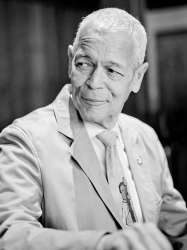 , 30minutes
, 30minutesDirected by Eduardo Montes-Bradley
Origin USA
Genres Biography, Documentary
Themes Films about racism, Documentary films about racism, Documentary films about law, Documentary films about historical events, Documentary films about politics, Political films
The film is built around an in-depth interview with Julian Bond, by Eduardo Montes-Bradley at the Sixth & I Synagogue in Washington, D.C., along with the last few lectures that he delivered, as a member of faculty, at the University of Virginia in May 2012. The interviews are bolstered by a barrage of photographs and archival footage taken from different sources. These images help define and illustrate the different historical eras beginning with the American Civil War and running up to the 2008 US presidential election.
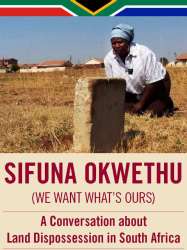
We Want What's Ours (2011)
Origin USA
Genres Documentary
Themes Films set in Africa, Films about racism, Documentary films about racism, Documentary films about law, Documentaire sur une personnalité, Documentary films about politics, Political films
The film tells the story of both sides claiming the same land as their own. The Ndolilas family’s land was taken by the apartheid government in the 1970s without compensation, and ever since then they have been on a quest to get it back. Standing in their way are working class black homeowners who purchased portions of the Ndolila's land during apartheid. For the homeowners, the land and houses they have legally purchased are a reward for their hard work and the fulfillment of their hopes and dreams for a better life in the new democracy. For the Ndolilas, the land is part of their family legacy and hence deeply intertwined with their identity. Both sides have a legitimate right to the land, and the film encourages viewers to think about whose rights should prevail.
 Connection
Connection